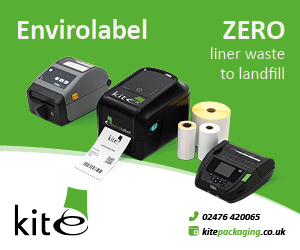Opinion: Ethical eating

Edwards Weston of Savanta on how gen Z continues to shop ethically – despite the cost-of-living crisis...
As the pandemic subsided and climate change returned to the forefront of everyone’s vision, becoming environmentally friendly continues to hold vast potential for businesses. Positioning sustainability as a core attribute of a brand’s makeup has been an effective way for brands to ‘tick the box’ for corporate social responsibility and generate positive buzz, with increased numbers of consumers being willing to pay more for products that meet their ethical standards.
A previous study by Savanta found that food is the area where environmentally friendly credentials most likely affect consumers’ purchasing decisions. And, as consumer consciousness around climate issues has grown exponentially, the opportunities for businesses in the eating out sector to harness this cannot be ignored.
Here, gen Z is a particularly powerful audience for brands to focus on. Representative of ‘the future’, this audience is the most likely to consider the environment when shopping for food and groceries, with millennials being the most willing to spend more on average to be environmentally friendly.
Sustainable purchases typically place a greater strain on the wallet. On average, organically produced foods cost three times the amount compared to those that are higher in sugar and fat. And with inflation causing supermarket prices to soar, it will be tempting to forfeit ethical eating for a cheaper food shop.
The onslaught of increased living costs in the UK from mortgages/rent to travel and food will impact consumers’ ethical consumption choices. Looking at gen Z food attitudes in the last year, the availability of ‘vouchers or discounts’ as a deciding factor to dine out has increased by 13%. This highlights that this audience has become more cost-conscious when choosing where, and what, to eat.
Nevertheless, this hasn’t affected gen Z’s choice to eat healthily. For this demographic, ‘healthiness of food’ has increased alongside ‘cost of food’ in consideration as a reason for choosing a brand since January. Notably, gen Z is the most engaged with alternative diets to improve their carbon footprint, with 11% identifying as vegan or vegetarian in 2021.
Data below from BrandVue, Savanta’s market intelligence platform, shows that despite the Russia-Ukraine war forcing UK price rises, gen Z is yet to compromise its healthy shopping habits to save money.
Younger generations are willing to pay more for products that meet their ethical standards, with data from YouthSight’s State of the Youth Nation, the UK’s leading gen Z insight tracker, highlighting that one in five young people believe that having ethical values is the most important brand attribute. In addition to this, gen Z rates ‘value for money’ the least out of all generations in the eating out sector. This further highlights that this audience is more willing to endure rising inflation prices to continue eating ethically.

Being more likely to feel strongly about environmental or welfare issues, gen Z remains more able than older generations to be ‘ethically conscious’ and therefore continues to be an important audience for health-conscious brands to engage with.










